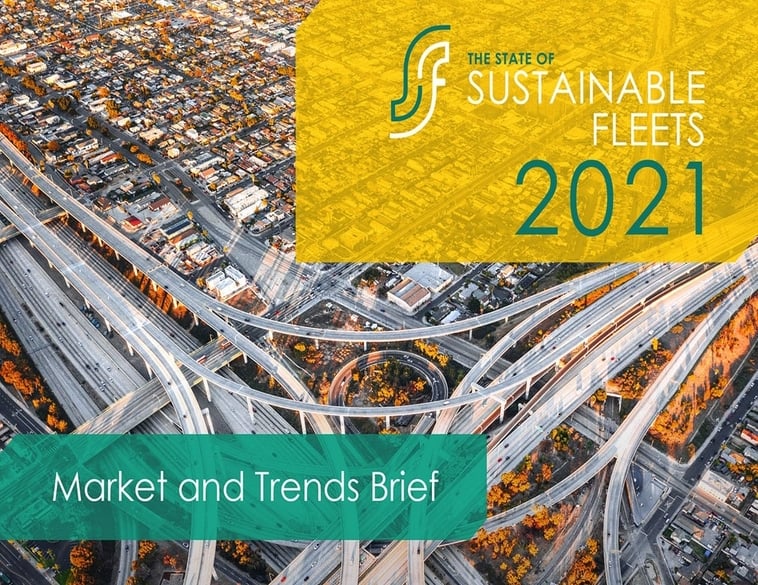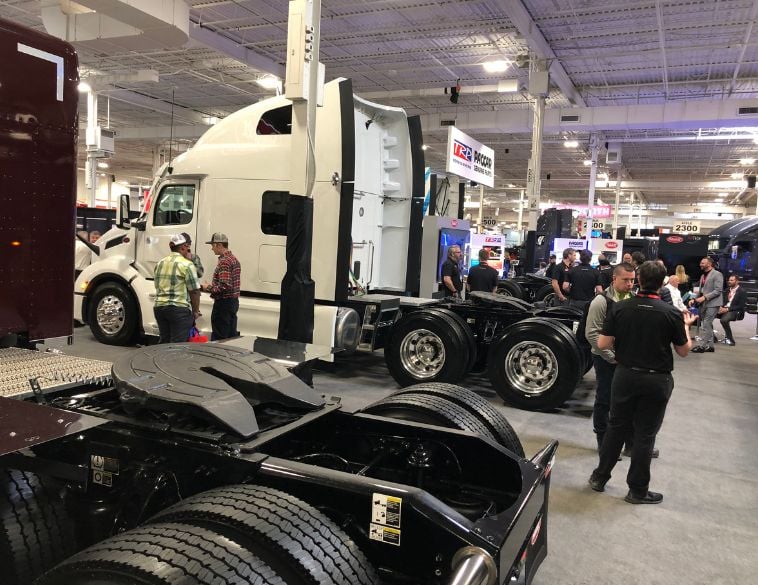While environmental concerns are currently a hot topic, the future success of road transport requires careful consideration of multiple energy strategies.
Sustainability is currently a hot topic across the automotive and transportation industries. When it comes to vehicle fleets, how legislation, operational and acquisition/disposal costs will impact fleet operators both now and in the future are major concerns.
Adapting to change
With governments around the world currently trying to implement bans or restrictions on fossil fuel usage as it relates to vehicles, how fleets will adapt and which alternative energy sources are truly viable long term, is a key topic of focus.
In the 2021 State of Sustainable Fleets webinar, presented by Gladstein, Neandross & Associates and sponsored by Daimler, Shell, Penske, with co-sponsorship from Geotab, Cummins and DTE, these topics were front and centre.
Kicking things off, Erik Neandross, CEO at Gladstein, Neandross & Associates, provided an overview of the current environment as it related to the fleet, citing the latest State of Sustainable Fleets report (2021).
The report noted that while diesel and gasoline vehicles have tended to dominate the medium and heavy-duty vehicle fleets for decades, current regulatory pressure is making it more and more difficult for fleets to operate at a competitive advantage without introducing efficiency or sustainability measures, such as cleaner vehicles and renewable fuel usage.
While battery-electric propulsion technology has been grabbing all the headlines, Neandross noted that the compressed natural gas and propane segments have seen strong performance over the last year, despite the COVID-19 pandemic.
Fuel cell technology
Additionally, there’s also been renewed focus on hydrogen fuel cell technology as a longer-term sustainable solution for transit and heavy-truck sectors. And, given the current regulatory pressure at the U.S. state, national and international levels in pushing for a lower carbon future, this is one area where significantly more investment and development is expected over the next few years.
Yet talking about alternative and renewable fuels and sustainability in one thing, seeing it in practice is entirely another. To help provide an understanding of real-world performance and benefits, both environmentally and economically, Neandross conducted a fireside chat with John Morris, Executive Vice President and COO of Waste Management. (WM)
Morris noted that to date, WM has spent around $2.5 billion on its compressed natural gas fleet of trucks, including putting in the infrastructure to support large-scale CNG fleet operations.
Currently, WM has around 70% of its vehicles fueled by CNG and has a target of achieving around 85% within the next few years. Morris said that investing and developing an adequate CNG infrastructure to support the vehicle fleet can still be challenging in some regions, especially for smaller operators with limited funds, but he noted that in WM’s case the company will continue to pursue that strategy where the opportunities exist.
The key to making such a strategy work overall, regardless of the size of the fleet, or the locales in which it operates, comes down to taking a bigger, longer-term picture. One interesting solution is leveraging methane gas output from landfills and converting that gas for energy and transportation use (Renewable Natural Gas or RNG).
Panel discussion
Following the fireside chat, the virtual conference opened up into a panel discussion that featured John Morris, Drew Cullen Senior Vice President, Fuels & Facility Services at Penske Truck Leasing; Patrick Carre, Vice President, Global Commercial Road Transport, Royal Dutch Shell and Rakesh Aneja, Head of eMobility, Daimler Trucks North America.
Starting off, Erik Neandross said, that current thinking both from a societal and business point of view, is clearly pushing towards this idea of a carbon-limited future and capital markets have really bought into this concept, aligning themselves with businesses that have outlined a carbon reduced, or carbon-neutral future.
Drew Cullen noted that in the case of Penske, sustainability is seen as a core part of the company’s DNA and the ultimate goal is to provide customers with a vehicle that meets their needs in the most efficient manner possible.
Yet Cullen acknowledged that while that continues to be a major objective, the kinds of questions customers are now asking, go beyond the efficiency of the vehicle itself. Such as, how as an organization, Penske handles aspects such as energy management from a building and infrastructure perspective as well as its waste streams.
Patrick Carre said that the COVID-19 pandemic has if you will, led to a re-think of priorities. He noted that despite the economic disruption many have witnessed over the last 12-15 months, zero emissions and de-carbonization are still very much at the forefront of many minds and how we can achieve practical reductions in emissions output is key to making it all work.
Specific use case
He cited Waste Management’s example of CNG adoption as a fantastic example of what can be achieved when well-thought-out action is taken but noted that currently at least, it represents a specific use case and might not be applicable to everybody.
Carre also said that while it is important to embrace the future, how trends will ultimately play out is very difficult to predict and so the best strategy for energy companies like Shell is to work closely and progressively with their fleet customers to help achieve meaningful results.
Rakesh Aneja, in representing the OEM perspective on the panel, said at Daimler, the focus is to keep the world moving, especially since trucks represent the backbone of just about every nation’s economy. Having said, given current environmental concerns, future trucking requirements need to incorporate a sustainability element and Daimler has committed to a carbon neutrality goal, at least within-trial markets by 2039.
Although battery electric and fuel cell technology are two of the core strategies Daimler is looking at, Aneja said it was important to consider all available options.
He noted that certainly, over the shorter term, fuel-efficient, low-emission diesel engines, as well as alternative fuels such as Renewable Natural Gas will play an important role as the transportation sector looks to reduce its carbon footprint and march toward achieving a truly sustainable and economically viable long-term future.



